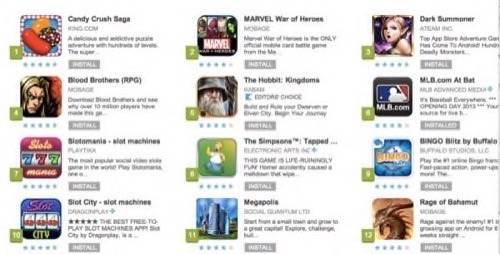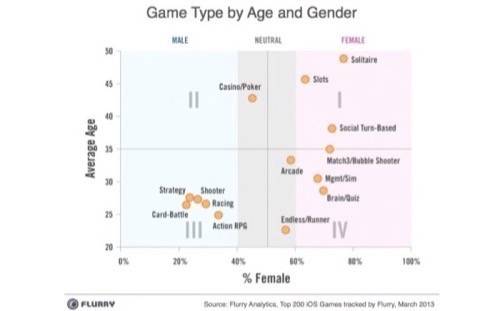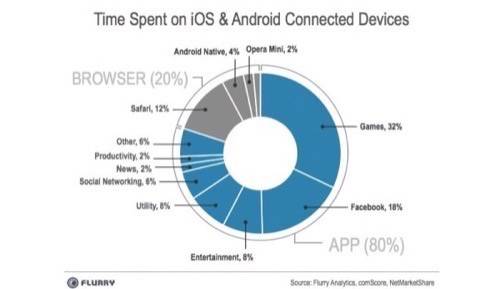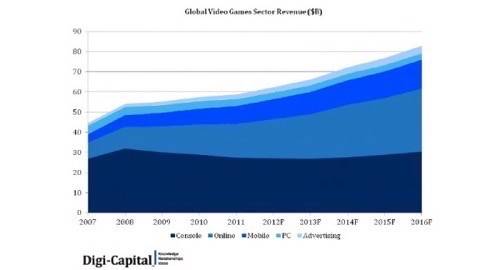
Do you like video games? More to the point, do you like developing games and making money? Then here’s some great news: The gaming boom that’s been underway for the past few years is still picking up steam.
And the good times should keep rolling for years— at least, that is, through 2018 or so. But by that point you’ll have had plenty of time to establish yourself, or even to have made your pile and retired.
Why Games Are Hot
Everybody needs games. Like, everybody. Games to pass the time. Games to learn. Games to compete. Games to prove yourself. Millions of years of human evolution and games, in one shape or another, have been there every step of the way.
Now we have computers, ever evolving gadgets that allows to do many, many things. But, what have people done with computers since the advent of the personal computer in the early 1980s? That’s right, they played games. In many ways, games define computing. And that’s never been truer than it is now in the midst of the mobile revolution.
With a billion smartphones in the world and tablets reaching hundrends of millions of consumers, the opportunity for mobile developers to create successful and long lasting careers in gaming is now. It’s a new renaissance for the game and an opportunity to build an industry that will last for decades.
The rise of the app ecosystem is directly correlated to that of mobile games. Millions upon millions of users have launched irate fowl at impertinent pigs, run from ghouls escaping a temple and built empires one block at a time. Mobile, social and connected games have been a huge boon to developers.
The total app ecosystem amounted a $2.2 billion worldwide market in the first quarter of 2013, according to research firm Canalys. That’s up 11% from the same time in 2012. The revenue comes from paid apps, in-app purchases and subscription services; it doesn’t take account the growing (and increasingly complicated) mobile advertising sector. Games produce the lion’s share of that revenue.
All Types Of Games, All Types Of People
Take a quick glance at the current top grossing apps in both the iOS App Store and Android’s Google Play. Of the top 30 apps on iOS, 23 of them are games. The rate is even higher on Android, where 28 of the top 30 are games. That’s a lot of games.
And there’s no particular rhyme or reason as to the types of games that are pulling in the bucks. They run the gamut from console remakes like Final Fantasy, to new legends like Angry Birds, to slot machine replacements like Slotomania (currently No. 7 on Google Play’s top grossing charts). These games cross gender, generational, ethnic and racial boundaries. So there’s lots of running room if you’re looking to get into gaming development.

Mobile analytics and advertising firm Flurry breaks down the types of games that people play by gender and age demographic. The biggest cluster belongs to young adult males (aged 25-30), who play card-battle games, strategy, shooters, racing and action role-playing games. Younger women tend to play more brain/quiz games, management and simulation and match/bubble puzzle games (like Candy Crush, No. 1 grossing in both Android and iOS currently).
Older women play more social turn-based games (think Farmville), slots games or solitaire-style card games. “Runner” games (Monster Dash or Temple Run) and arcade-style games (Angry Birds) are more gender neutral.

A Stable Market
We are now in year 6 of the mobile revolution. As mentioned above, people around the globe were using more than a billion smartphones as of late 2012. Another billion are expected to come online over the next three years. After that, who knows? Developed countries have hit a saturation point — most U.S. and Western Europe consumers already own smartphones that they continue to upgrade when new versions come out. Emerging markets like India, China, Eastern Europe and the Middle East will drive much of the growth over the next five years.
Flurry estimates that 32% of smartphone user time is spent on games — and it’s been that way for a while. As the mobile revolution matures, we now have historical usage data to look back upon and make definitive statements about which categories will remain strong and which were mere fads.

There’s little reason to think that mobile gaming is in any type of “bubble.” Games investment bank Digi-Capital expects the entire gaming sector to produce $83 billion in revenue (excluding hardware) in 2016. Mobile is predicted to contribute more than 10% of that overall revenue, perhaps $10 billion to $15 billion. Gaming investments will continue to climb and mobile will be the largest category, with nearly mobile far and away the leader in capital investments.

If you’re a game developer, there are many ways to not just make a living, but to make yourself quite wealthy. If you can crack the top charts on iOS or Android (or even BlackBerry or Windows Phone — even better, all four) then you can be looking at a substantial payday. If not, it’s an even bet that if you have a good product you could pull down some substantial venture capital dollars or get snapped up by one of the larger game makers.
Everybody in the world has the potential to have some type of computer in their pocket. You know what are going to be some of the first apps on those computers? Yup, games. Mobile game developers are facing a Golden Age. One that is not going to end any time soon.
Top image: Soul Caliber for the iPad

















